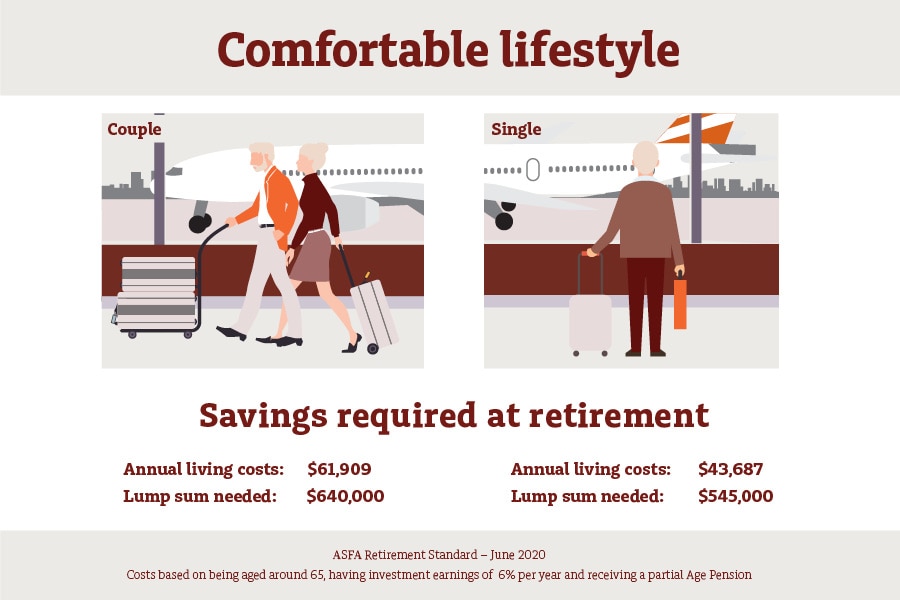Key takeaways
- Start the conversation early so younger generations understand what they’re likely to inherit
- There are strategies that can help to ensure your wealth passes in a tax-efficient manner
- Testamentary trusts can be beneficial if you want your wealth to remain in your direct blood line.
We spend a lifetime generating wealth but few of us spend the time to ensure it’s passed on in the way we want it to.
Having a plan in place for how and when you want your wealth to be transferred, will help all parties understand your intentions and the process.
While there isn’t a one-size-fits-all approach, we’ve highlighted a few considerations to get you started.
Start the conversation early
Before any plan is implemented, it’s crucial that families have honest conversations about their wealth so younger generations understand what they’re likely to inherit.
This will help your beneficiaries prepare and have a planned purpose for how it should be used. It also means they have time to seek professional help if needed.
Another benefit of these conversations is they present an opportunity to talk about any long-term goals you may have. For instance, you may want your beneficiaries to set up a retirement account, allocate it to their kids’ education or support a cause you love.
Seek help from a professional
Before making a decision to relocate, it’s always important to consider the impact it will have on your lifestyle and financial situation.
A financial adviser can help by investigating different strategies for you so you can make a balanced and informed decision on whether a tree/sea change is your best option.
They can also assist with other aspects of your financial life—savings, insurance, tax, debt—while keeping you on track to achieve your goals.
More importantly, they can answer questions like:
- How can I pay off my mortgage faster and reduce my debt?
- What age can I stop working and retire?
- What strategies can I use to build my wealth?
If you value the experience of experts in other aspects of your life, don’t discount it when it comes to managing your life savings.
Tax implications
Depending on your circumstances, there are strategies that can help to ensure your wealth passes in a tax-efficient manner.
Super
One of the most common methods of wealth transfer is through super. But when a family member dies and their super is passed to beneficiaries—such as their children who are financially independent—death benefit taxes on some or all of the benefit may apply1.
The payment of super benefits to beneficiaries on death may also be challenged by those who felt they didn’t receive the share they were entitled to.
One option that may help to avoid these outcomes is to withdraw super after you’re retired, rather than on death. This can also reduce death benefit taxes too.
Gifting
Transferring wealth via gifting can be a good option as you won’t have to pay tax on the money you give. It can however, affect you financially if you’re receiving social security benefits and you exceed the gift limits.
You’re entitled to gift up to $10,000 in cash gifts and assets each financial year and up to $30,000 over five consecutive years2. If you exceed this limit it may reduce your social security benefit.
An alternative to gifting that you may prefer is loaning wealth to family members. A loan to a family member will not affect your social security benefit and can usually be recalled if, for example, the family member’s marriage or de facto relationship breaks down.
Capital Gains Tax
If you choose to transfer the ownership of assets while you’re still alive, a capital gains tax (CGT) event may occur. By contrast, CGT will generally not apply at the time ownership of assets is transferred to beneficiaries via a deceased estate.
Consider setting up a trust
Some people choose to pass their wealth to their intended beneficiaries via a testamentary trust rather than leave all their assets directly to them.
One of the main benefits of testamentary trusts is they can enable your wealth to remain in your bloodline (ie pass to your lineal descendants). It also enables wealth to pass in a manner that protects beneficiaries who may be vulnerable due to marriage or a relationship breakdown, or due to their profession or a business they operate.
In other cases, testamentary trusts can simply preserve wealth by ensuring it is not misspent by beneficiaries on poor lifestyle choices or investment decisions.
These trusts, which are written into the will when planning your estate affairs can have significant tax benefits too.
For example, if a beneficiary receives their inheritance under their personal name, they may be liable to pay additional tax on investment earnings or capital gains at their personal marginal tax rate. However, if they take the inheritance through a testamentary trust, particularly where the beneficiary has a high personal marginal tax rate, they may not be liable for as much tax as income can be generally be split with the beneficiary’s other family members, including young children.
Depending on your circumstances, you may even choose to set up separate trusts for each beneficiary. This will enable them to invest the way they want and manage their finances independently over the long-term.
Write a will and update it
One of the simplest things that people often overlook is writing a will. This document is the bones to any successful wealth transfer plan and must be updated regularly to ensure any major life changes are accounted for. This can include anything from getting married or having children, to selling the family home.
If you would like competent advice in this area, please email us at ds@bluerocke.com with your contacts, for an exploratory meeting, at our cost, not yours.
Article source: https://www.mlc.com.au/personal/blog/2021/04/transferring-your-wealth

